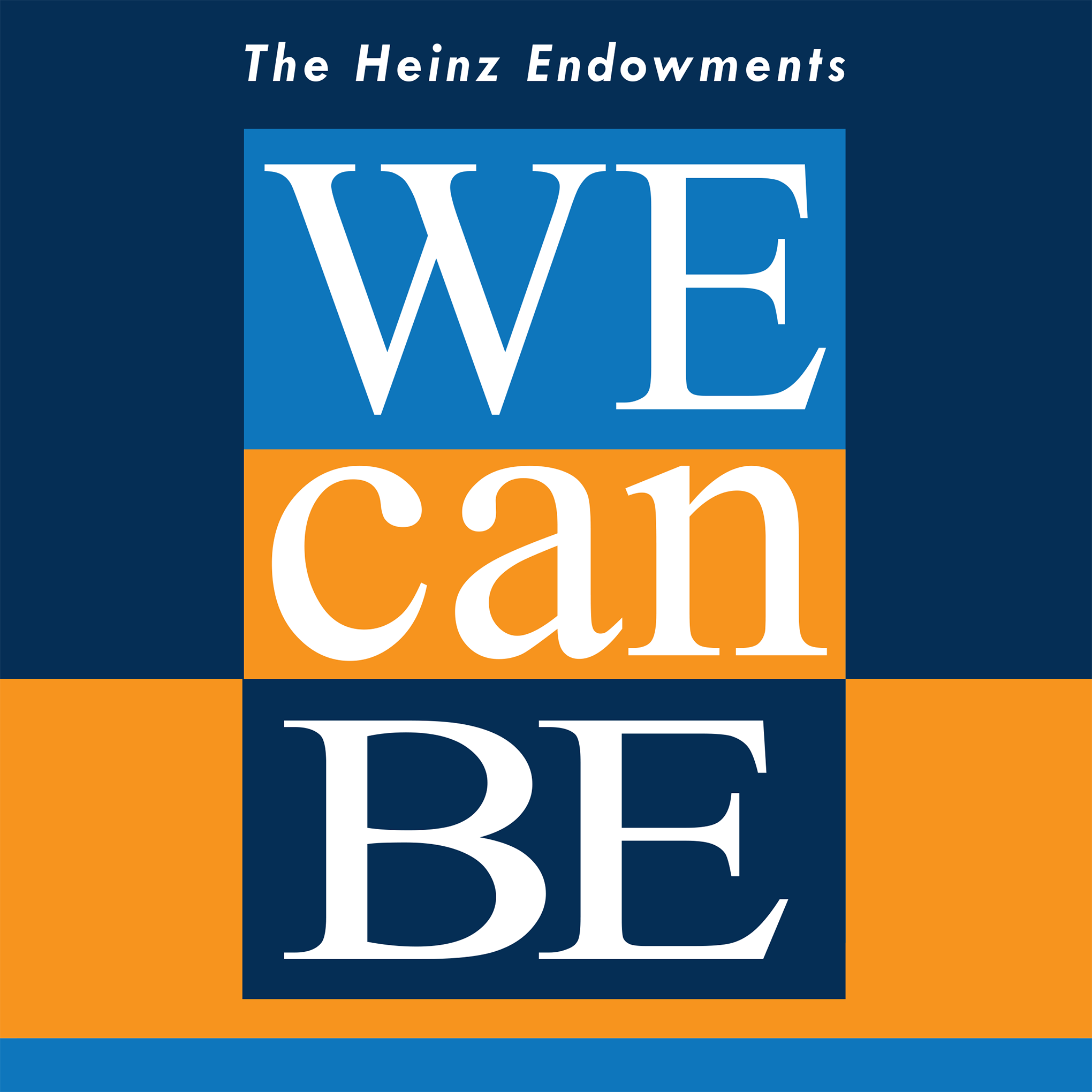
Those working for a more just world share their stories of community and possibility to host - and The Heinz Endowments President - Chris DeCardy. Episodes take you behind the scenes of in-the-news individuals and topics, revealing honesty, humanity and hope at every turn.
Those working for a more just world share their stories of community and possibility to host - and The Heinz Endowments President - Chris DeCardy. Episodes take you behind the scenes of in-the-news individuals and topics, revealing honesty, humanity and hope at every turn.
Episodes
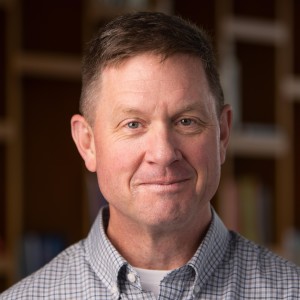
Wednesday Sep 21, 2022
Wednesday Sep 21, 2022
Dr. Daniel Perkins, professor, founder and principal scientist of the Clearinghouse for Military Family Readiness at Penn State University, leads the largest-ever longitudinal study of post-911 transitioning veterans, “The Veteran Metrics Initiative.”
Danny joins host Megan Andros, the Endowments’ senior program officer for veterans, in diving into the startling findings of his team’s research. Beginning with an initial cohort of 10,000 veterans, the study followed an eventual 6,700 veterans over a three-year period as they transitioned from active military duty to civilian life.
The resulting data has revealed hard truths about the bureaucratic, financial, health and vocational obstacles veterans often face, and provides a basis for asking: Are we failing our veterans at the moment they need us most?
Despite the enormous leadership skills, technical ability, and work ethic veterans bring to our world, the study found that only 34 percent of post-9/11 veterans were deemed successful in transitioning from military to civilian life at the two-and-a-half-year mark.
The research makes clear that while a wealth of organizations provide services to those exiting the military, the navigation of those services can be dauntingly difficult for veterans.
“Transition is a place where things can go wrong, or it can be a place of great opportunity,” Danny says. “This data helps us understand that by taking action early on, we can help our veterans have better outcomes in the civilian world.”
Danny shares how growing up as a son of a military father influenced his dedication to his veterans research; why focusing on coordinated points of contact for service providers is key; and why it is important to remember that behind each data point is a human being who has served our country.
“I think as a country we can be a place where we acknowledge veterans for their service by taking action to support them when they need us most.”
This episode of “We Can Be” is hosted by Heinz Endowments Senior Program Officer for Veterans Megan Andros and produced by the Endowments, Josh Franzos and Tim Murray. Theme music by Josh Slifkin. Guest inquiries can be made to Scott Roller at sroller@heinz.org. Guest image credit: Tim Murray/Treehouse Media.
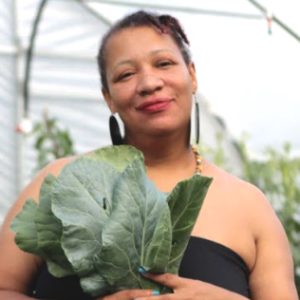
Wednesday Sep 14, 2022
Black Urban Gardeners’ Raqueeb Bey is growing food, minds & leaders (S04EP14)
Wednesday Sep 14, 2022
Wednesday Sep 14, 2022
Raqueeb Bey, the founder and executive director of Black Urban Gardeners and Farmers of Pittsburgh, joins this episode’s host, Endowments Vice President of Sustainability Andrew McElwaine, to discuss food deserts, the healing effects of holistic gardening and the organization’s surprise boost from alt-rock stars Rage Against the Machine.
Raqueeb founded Black Urban Gardeners (BUGS), a collective of Black men and women who use education and gardening experiences to address the food desert challenges that persist in many Black and brown communities, in 2015. As she came to recognize a fraying generational knowledge of how to garden, she was moved to take action through BUGS and Mama Africa's Green Scouts, a youth program she founded that teaches community gardening and sustainability.
“We don’t just grow food,” Raqueeb says. “We grow minds and leaders.”
Raqueeb shares her journey from a career in finance and banking to becoming a prominent figure in the growing food sovereignty movement, as well the the inspiration her godfather gave her that led her to understand the health and healing power of working with the earth.
Her work with BUGS – including running a 31,000-square-foot teaching farm in Pittsburgh’s Homewood neighborhood – has gained national attention in media outlets including Environmental Health News and Good Morning America. BUGS also garnered recent headlines for the recognition that alt-rock stars Rage Against the Machine gave the organization during their current world tour.
Raqueeb is clear about the historical obstacles that Black and brown communities have long faced in their opportunities to own and work their own land, many of which continue to this day, resulting in food insecurity and limited access to healthy food.
As she encourages others to take charge of their food and health, Raqueeb is optimistic about the future of the fight to end food apartheid.
“Every day I see the health benefits, community, and emotional healing power that Black urban gardeners of all ages experience when they work with the earth.”
This episode of “We Can Be” is hosted by Heinz Endowments Vice President of Sustainability Andrew McElwaine and produced by the Endowments, Josh Franzos and Tim Murray. Theme music by Josh Slifkin. Guest inquiries can be made to Scott Roller at sroller@heinz.org. Guest image credit: Brian Cook/Golden Sky Media.
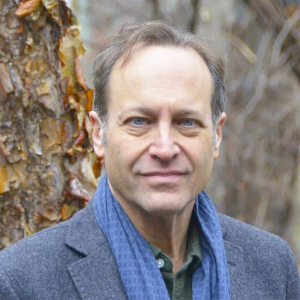
Wednesday Sep 07, 2022
PBS NewsHour’s Jeffrey Brown: Yes, the arts are essential & here’s why (S4E13)
Wednesday Sep 07, 2022
Wednesday Sep 07, 2022
Jeffrey Brown, PBS NewsHour chief correspondent for arts, culture and society, joins “We Can Be” host Janet Sarbaugh, The Heinz Endowments’ vice president of Creativity, as they tackle one of the creative realm’s big questions: Are the arts essential?
“Art matters because it shows us a bit of the world we might not otherwise see,” Jeffrey says. “It takes us places we might not go because it makes us think, because it makes us know other people, because it makes us laugh and cry.”
In his more than 20 years with PBS NewsHour, Jeffrey has reported on a wide range of national and international arts- and culture-related issues. He created PBS NewsHour's online "Art Beat” segments and its monthly book club, "Now Read This," a collaboration with The New York Times.
An Emmy and Peabody award-winner, Jeffrey is a talented creative in his own right, too. He wrote the well-received poetry collection “The News” and contributed to a newly released collection of essays titled “Are the Arts Essential?”
From the impressive security detail of an interview with Angelina Jolie and the eloquent warmth of Patti Smith to being moved by the Dallas Street Choir, whose members are without permanent homes, Jeffrey shares meaningful behind-the-scenes moments in his storied career. Those moments have cemented his dedication not only to tell stories of art and culture, but also to consider our individual roles in critical societal issues.
“Reporting on the arts in a global community matters,” he says. “It matters because it offers a truer and fuller version of the world.”
This episode of “We Can Be” is hosted by Heinz Endowments Vice President of Creativity Janet Sarbaugh, and produced by the Endowments, Josh Franzos and Tim Murray. Theme music by Josh Slifkin. Guest inquiries can be made to Scott Roller at sroller@heinz.org.
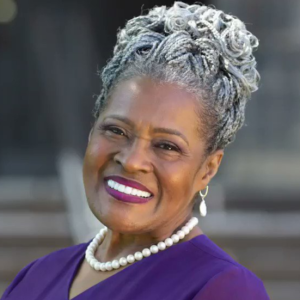
Wednesday Aug 31, 2022
Wednesday Aug 31, 2022
“I’ve had letters from young Black girls saying ‘I now know this is possible,’” Carlow University’s groundbreaking president Dr. Kathy Humphrey, tells “We Can Be” host Michelle Figlar, The Heinz Endowments’ vice president of Learning.
As the first Black president in Carlow’s nearly 100-year history, Dr. Humphrey brings a life-long love of teaching and a wealth of experience, including positions at the University of Pittsburgh and St. Louis University.
From playing school in her free time when she was a child to an ongoing belief that we must “treat teachers like the gold they are,” she has dedicated her professional life to helping students understand their true worth. “It’s important that students know: ‘You are somebody. Your dreams are possible,’” she says.
Renowned for her efforts to “build the whole student” through programs that foster leadership, communication, social and “real world skills,” Dr. Humphrey’s dedication to young people comes naturally: She has 107 nieces and nephews, as well as twin sons of her own.
Dr. Humphrey believes in both the moral and financial importance of a progressive, equitable and diversity-focused higher education curriculum, and in the long-term benefits of mentoring students who are the first in their family to attend college.
“When you change the life of a first-time student, you are changing generations,” she says.
Experience her vibrant energy and learn about her inspiring, life-changing work in this episode of “We Can Be.”
This episode of “We Can Be” is hosted by Heinz Endowments Vice President of Learning Michelle Figlar, and produced by the Endowments, Josh Franzos and Tim Murray. Theme music by Josh Slifkin. Guest inquiries can be made to Scott Roller at sroller@heinz.org.
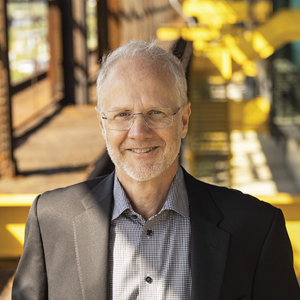
Wednesday Mar 23, 2022
Wednesday Mar 23, 2022
The importance of gratitude, what makes a community great, & his hope for what the future holds for the social change realm are among subjects Grant Oliphant covers as his tenure as president of The Heinz Endowments – & as host of “We Can Be” – comes to an end.
While the “We Can Be” podcast will continue with new episodes and hosts in the coming months, this episode includes Grant’s reflections on the 70-plus guests he hosted over the past four seasons and spotlights why supporting those who speak truth to power is crucial.
“Challenging the conventional trains of thought takes bravery,” he said. “Sometimes advocates make people in power uncomfortable, and I think that’s OK.”
Grant shared the deep gratitude he feels toward the Heinz family and why the work of those in the social change community is critical to our country.
“Philanthropy does what government can’t and won’t do,” he said. “Government doesn’t invest in innovation and risk-taking, and philanthropy can – and does. It is an important part of making sure our communities continue to thrive.”
Helping envision – and build – a more innovative, inclusive and sustainable community was a cornerstone of Grant’s accomplishments while with the Endowments and will inform his upcoming work on the West Coast with the Conrad Prebys Foundation.
“A great community is one that makes room, in a conscious and deliberate way, for everyone.”
“We Can Be” has been hosted by Grant Oliphant, former president of The Heinz Endowments, and produced by the Endowments, Josh Franzos and Tim Murray. Theme music by Josh Slifkin. Guest inquiries can be made to Scott Roller at sroller@heinz.org.
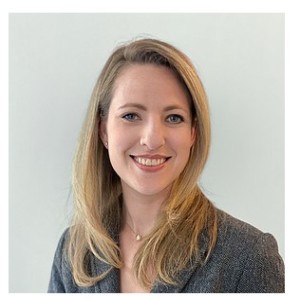
Wednesday Oct 13, 2021
Wednesday Oct 13, 2021
“The circle of concern has to be wide enough for all of us to fit inside,” Jenn Hoos Rothberg tells host Grant Oliphant on this episode of “We Can Be.”
Jenn is executive director of the Einhorn Collaborative, a nonprofit foundation dedicated to addressing America’s crisis of connection by increasing opportunities for empathy and civility.
Her work is especially needed in these times. This past summer, a U.S. News and World Report piece reported that out of 17 countries surveyed, the U.S. had the highest percentage – 88 percent – of respondents say that they felt our society was more divided now that it was prior to the start of the pandemic.
Jenn is clear that such findings are not the whole story, however, and is doing her part to elevate examples of everyday humans building bridges and fostering deep, meaningful relationships with those different from themselves.
She’s doing just that as a co-producer of the documentary feature film “The Antidote,” which centers on the moving stories of real-life people who are making the intentional choice to lift others up, and is now available on Amazon Prime.
She breaks the “kindness equals weakness” myth, and shares the “three B’s” – bonding, bridging and building - that may be the key to keeping both our society and democracy functionable.
“What we do is just as important as how we do it,” Jenn says. “What we’re in need of is not simply the ritual of acting kind. We can can dig deeper and be kind.”
Be kind and listen – and share – this episode of “We Can Be.”
“We Can Be” is hosted by Heinz Endowments President Grant Oliphant, and produced by the Endowments, Josh Franzos and Tim Murray. Theme music by Josh Slifkin. Guest inquiries can be made to Scott Roller at sroller@heinz.org.
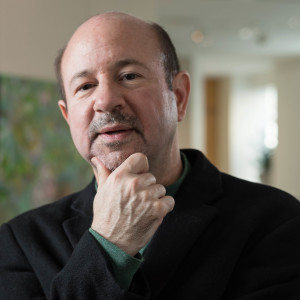
Wednesday Sep 29, 2021
Wednesday Sep 29, 2021
Michael Mann, one of the world’s preeminent experts on climate change, said in a Boston Globe editorial published shortly after the devastating storm made landfall in Sept. '21: “Hurricane Ida was a shot across the Earth’s bow."
Michael is distinguished professor of atmospheric science at Penn State University, with joint appointments in the Earth and Environmental Systems Institute and the Department of Geosciences and the Earth.
He is the author of five best-selling books, including the recently published “The New Climate War: The Fight to Take Back Our Planet” as well as “The Tantrum that Saved the World: A Carbon Neutral Kids’ Book” and “The Hockey Stick and the Climate Wars.”
In 2019, Michael received the Tyler Prize for Environmental Achievement, often called the “Nobel Prize for the Environment,” and in 2020, he was elected to the U.S. National Academy of Sciences.
He has written or co-written more than 230 climate-focused academic papers, and is a widely sought-after commentator on the science, societal and political aspects of climate change.
Michael tells podcast host Grant Oliphant that it is indeed still possible to avert the most devastating impacts of climate change, and believes indisputable science and a burgeoning youth environmental movement are key to our future.
“The forces for action have now aligned,” he said.
Learn what we need to do next on this episode of “We Can Be.”
“We Can Be” is hosted by Heinz Endowments President Grant Oliphant, and produced by the Endowments, Josh Franzos and Tim Murray. Theme music by Josh Slifkin. Guest inquiries may be made to Scott Roller at sroller@heinz.org. Guest image by Joshua Yospyn, courtesy michaelmann.net.
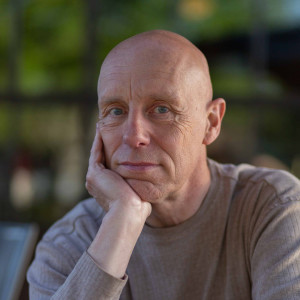
Wednesday Sep 22, 2021
Wednesday Sep 22, 2021
Energy industry researcher and “The State of My State” author Sean O’Leary zeroes in on the role of coal, natural gas and petrochemicals in the economies of Appalachia.
He does it with with a deep respect for the region where he grew up, and an understanding that with the beauty and grandeur of that region also comes unfulfilled promises of hydraulic fracturing-related prosperity.
Sean was born and raised in West Virginia, and is a senior researcher and writer with the Ohio River Valley Institute. The Institute was founded in 2020 with an aim of providing sound research that will help promote a more sustainable, equitable, democratic and prosperous Appalachia.
His book, newspaper column and blog—all titled “The State of My State”—have been widely shared and cited, and have captured the attention of the U.S. Department of Energy, where Sean was asked to present earlier this year.
Sean shares with host Grant Oliphant the painful battle regarding “wish and hope” that he has heard families in Appalachia express. He says that while they often “wish their kids and grandchildren would stay when they are grown and have families of their own, the lack of opportunity makes them also hope they don’t.”
Hear about eye-opening data and the post-fossil fuel economic plan playing out now in a community in Washington state that is giving hope that a similar blueprint for Appalachia is possible—all on this new episode of “We Can Be.”
“We Can Be” is hosted by Heinz Endowments President Grant Oliphant, and produced by the Endowments, Josh Franzos and Tim Murray. Theme music by Josh Slifkin. Guest inquiries can be made to Scott Roller at sroller@heinz.org. Guest image: Steve Stolee.
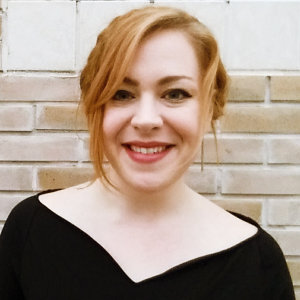
Wednesday Sep 15, 2021
Wednesday Sep 15, 2021
Kristina Marusic is an investigative reporter covering environmental health & justice issues for Environmental Health News, a nonprofit and nonpartisan organization dedicated to driving science into public discussion and policy.
In early 2021, Environmental Health News published Kristina’s “Fractured: The body burden of living near fracking,” a four-part series that revealed the health impacts of shale hydraulic fracturing—or fracking—on families living near fracking sites. Research for the series, conducted in the summer of 2019, included a nine-week collection of air, water, and urine samples from five southwestern Pennsylvania households, all including at least one child.
Kristina’s “Fractured” series garnered national attention, and has become a key piece of evidence for lawmakers urging action on environmental health issues.
Prior to joining the Environmental Health News team in 2018, Kristina gained national acclaim for her work as a staff writer for MTV news, and has had bylines on stories in The Washington Post, CNN, Slate, Vice, Women's Health, and The Advocate.
Kristina’s journalism is, as she tells host Grant Oliphant, “a way of reporting that helps society learn how to fix itself. It's not advocacy or fluff or good news, it's forward-looking, serious and critical.”
Of her reporting on environmental topics, including climate change, the health risks of fracking, and “super pollution” air events, Kristina says: “I believe that true, well-told stories have the power to change the world for good.”
Listen to how she is doing just that on this episode of “We Can Be.”
“We Can Be” is hosted by Heinz Endowments President Grant Oliphant, and produced by the Endowments, Josh Franzos and Tim Murray. Theme music by Josh Slifkin. Guest inquiries can be made to Scott Roller at sroller@heinz.org.
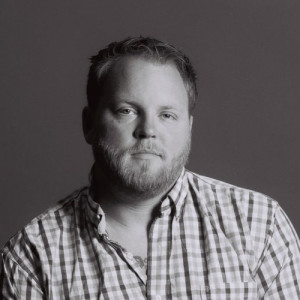
Wednesday Sep 08, 2021
Wednesday Sep 08, 2021
Thomas Brennan is Founder and Exec. Director of The War Horse, a nonprofit newsroom that has gained international respect for reporting on the often-unspoken human impacts of military service.
A former Marine Corps sergeant who served as an infantryman in Iraq and Afghanistan, Thomas joins host Grant Oliphant for a timely conversation about his journey from active duty service in Afghanistan to being honored with a Robert F. Kennedy Human Rights Award for his resolute reporting on sexual assault in the military.
Thomas first gained widespread journalistic acclaim for a series of self-penned pieces in The New York Times that chronicled what he has called the “mental health and moral injury” – including what was eventually diagnosed as a traumatic brain injury - caused by an attack in Afghanistan’s Helmand Province when he was 24.
Thomas went on to found The War Horse in 2016, and the following year co-authored the well-received Shooting Ghosts—A U.S. Marine, a Combat Photographer, and Their Journey Back from War with Finbarr O'Reilly.
“When reading my reporting, I don’t want people to think that it’s ‘poor me,’ or ‘woe is me,’ because veterans don’t want pity,” Thomas says. “We want to have a conversation.”
Aiming to bridge the military – civilian divide through well-researched stories that hold truth to power, Thomas and The War Horse team have done just that, publishing investigative pieces that have served as catalysts for significant national policy change.
Thomas says: “We aim to strengthen our democracy by improving our country’s understanding of the true cost of military service.”
“We Can Be” is hosted by Heinz Endowments President Grant Oliphant, and produced by the Endowments, Josh Franzos and Tim Murray. Theme music by Josh Slifkin. Guest inquiries can be made to Scott Roller at sroller@heinz.org. Guest image credit: The Carey Institute for Global Good.
